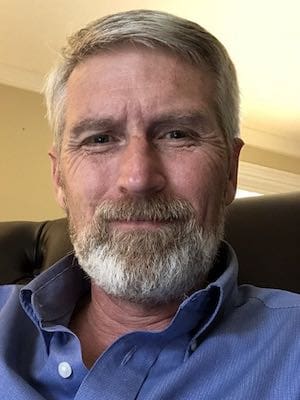What would you do if you learned that three of your friends were planning to do something criminal? Matt Atkinson, a high school senior at East High School in Green Bay, Wis., was told by three of his friends that they planned to carry out a Columbine-style attack on their 1,500-member school, shoot students and staff they didn’t like, ignite bombs and set fires.
Remember, these are Matt’s friends. For all he knew, these guys could be joking around. If he shared this information and it all turned out to be some twisted joke, Matt would look foolish and he would get his friends in a lot of trouble. The friendships would likely be over.
After discussing the matter with his mother, Matt decided that he had to act. He went to school and met with the assistant principal, who then called the police. As it turned out, the information was credible. Law enforcement searched the boys’ homes and found suicide notes, a large cache of weapons, ammunition, camouflage clothing, helmets, and gas masks.
Matt downplayed his role as a hero, saying that it was important for him to “do the right thing.”
“That’s all I can say: do the right thing,” he told the Associated Press. “There’s no harm in telling somebody about it. I didn’t do it for fame. I had fear for the life of my fellow students and staff at EastHigh School.”
The public recognized that Matt had a choice: he could have chosen to do nothing. English philosopher Edmund Burke once said, “All that is necessary for the triumph of evil is that good men do nothing.”
Had Matt done nothing, it’s not likely that his name would have ever made the paper. It’s doubtful that anyone would have ever accused him of doing anything evil. Yet his inactivity would have allowed evil to triumph. It would have cost people their lives. Instead, he acted and lives were saved.
Look around you. There are plenty of examples of decisions that people do not make that cost them greatly.
A husband and wife never purchase life insurance because they don’t think either of them will die young. When it happens and one is left to care for a family without adequate income, the consequences become real.
A young person squanders an opportunity for an education and discovers that later in life it’s difficult to get a well-paying job. The consequences are that later in life it’s twice as hard to go back to school, though certainly not impossible.
A woman ignores her doctor’s warnings and continues to go without exercise. She smokes and enjoys a poor diet. Not making these changes will reap a life of poor health and cut her life short.
A man fails to treat his home for termites and one day he discovers that these hungry, silent insects have turned his home into a straw castle.
A young Christian woman fails to choose Christian men to date. When she falls in love with a man who isn’t a Christian, she thinks she’ll change him. But when they marry, he’s just as uninterested in spiritual things and the Lord as he was before. When children come along, the family never worships together. There is no spiritual bonding in the home.
The scriptures attest that sin (missing the mark) isn’t committed only by doing things we shouldn’t do; sin is also not doing things we should do.
One of the harshest words of judgment Jesus issued in his ministry had to do with this type of sin–sins of omission. Jesus said there will come a time when God will say: “Depart from me, you who are cursed, into the eternal fire prepared for the devil and his angels. For I was hungry and you gave me nothing to eat, I was thirsty and you gave me nothing to drink, I was a stranger and you did not invite me in, I needed clothes and you did not clothe me, I was sick and in prison and you did not look after me.”
This passage tells us that social ethics are at the heart of Christianity. In order to do the right thing, Christians must be involved in the plight of the poor, the condition of the neighborhood, the branches of government, the lives of beggars, the living conditions of widows and the justice system. They must care about the plight of foster children, those who cannot afford housing, people who are addicted to drugs and those who cannot afford health care.
Too often the Christian community acts like the two religious men in Jesus’ story who passed by a wounded man in the ditch who had been beaten and robbed and left for dead. Many times we pass by on the other side too, doing nothing, choosing not to get involved, to offer our help, love and attention. We choose to do nothing.
Sometimes it takes a Samaritan to come along and show us the way it ought to be done, or a teenager from Green Bay, who reminds us that all decisions come down to doing the right thing, even when the right thing is the hard thing to do.
Michael Helms is pastor of Trinity Baptist Church in Moultrie, Ga. His column appears in The Moultrie Observer.

